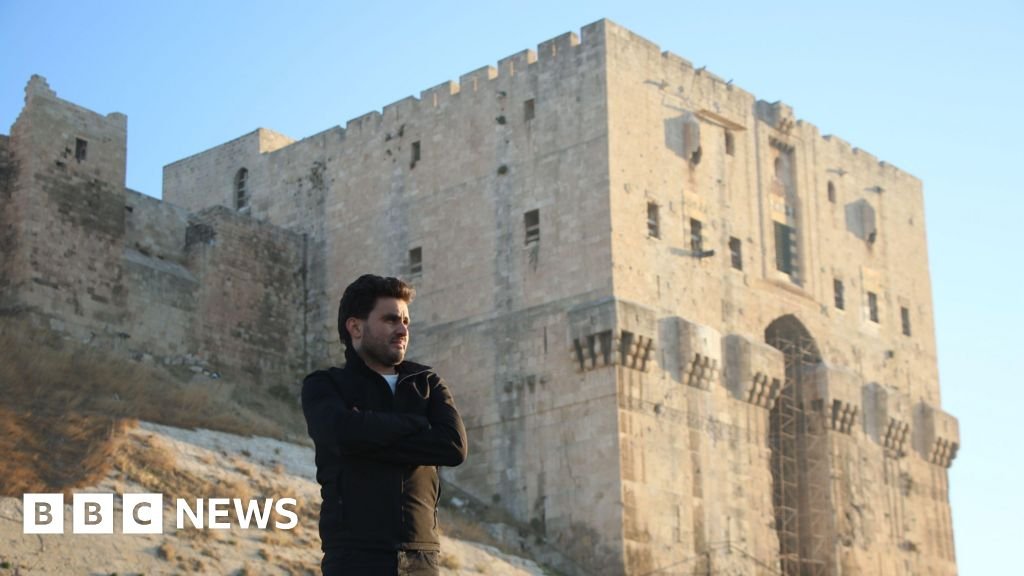Abdulkafi, an English teacher from Aleppo, saw his father for the first time in years on Monday, days after rebels launched a major offensive and took control of the northern Syrian city from government forces.
“He is 85 years old, an old man. He never dreamed that he would see me again before his death,” said Abdulkafi, who lives in opposition territory. Before the start of the offensive, he could not go under the control of the Aleppo regime.
A video of the meeting, seen by the BBC, shows the two men embracing and sobbing with emotion.
Abdulkafi is one of several people in Aleppo who spoke to the BBC after the city was overrun by the armed rebel group Hayat Tahrir al-Sham (HTS) and allied forces loyal to President Bashar al-Assad.
They described being treated with respect by HTS fighters and increased electricity and water supplies, but also spoke of their fears of war returning to Aleppo and their disbelief that the former al-Qaida-linked group’s moderation would to continue
According to the UN, as a result of the recent fighting, tens of thousands of people have been forced to leave their places.
Many interviewees wished to remain anonymous for their own safety. Some individual account details could not be verified due to the difficulties of independent reporting from Syria.
Many people in Aleppo fear renewed fighting, say local residents interviewed by the BBC. Dozens of people have already been killed in airstrikes by the Syrian government and allied Russian forces, according to the Syrian Observatory for Human Rights, a UK-based monitoring group.
One man told the BBC his main worry was the bombing, which he feared could hit the city at any moment. He said he prevented his family from even going to the corner store.
“We live in full alertness,” he said. He added that the airstrikes that hit the city over the past few days reminded him of earlier periods of war.
Aleppo, which was seized by rebels in the early years of the Syrian civil war, was retaken by Russian-backed Syrian government forces in 2016 after a grueling siege.
Since then, the city has largely avoided direct warfare. The Syrian government is taking credit for what it says is ongoing reconstruction of the city, which was Syria’s commercial hub before the war.
But non-governmental organizations and independent journalists accuse the government of massive human rights violations, including torture and killing of civilians and non-existent democratic rights.
The meeting between Abdulkafi and his father was joyous, but Abdulkafi said some of his relatives were afraid to be around him for fear of reprisals if regime forces recaptured the city.
Their long separation began when his father, who was working in Saudi Arabia, returned to regime-controlled territory after Abdulkafi had already moved to opposition-controlled areas.
“1984 applies in Aleppo. Assad’s image is on every building, street, on every corner. He controls their minds,” he said, referring to George Orwell’s novel about totalitarianism.
For him, the rebel victory was the “victory of freedom” he had been waiting for since he left the city in 2016.
Others in Aleppo are more terrible. One woman said people were “confused and scared” after being seized by rebels. She said that at first she did not leave the house, but later went for walks and walks with her family after hearing that the insurgents were not harassing civilians.
“It was relatively calm everywhere. But everyone looked scared and alarmed, you could tell by their faces and reactions. No one looked comfortable.
“People are scared because we don’t trust anyone and we don’t believe that they can react to what is happening now.
“We feel let down by everyone. We don’t know what will happen to us.”

